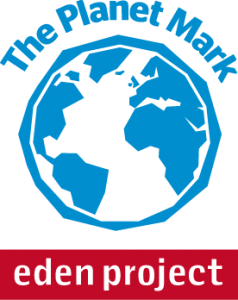
The launch of Countdown, the global initiative curated by TED to champion and accelerate solutions to the climate crisis, is another hard-hitting reminder – as if we need one – that action out of ideas is vital to achieve net zero carbon.
President of the EU Commission, Ursula von der Leyen, joined leaders, artists and activists in the global streaming event to highlight actionable and research-backed ideas, cutting-edge science, and inspiring global conversations to establish a pathway to a better greener future.
One of the projects involved in the movement is around the development of self-fixing concrete cracks. The construction industry’s response to align with the UN’s Sustainable Development Goals and Environmental Social Governance is making a huge effort to provide a framework for the transition to sustainability as part of the 2020-2030: A Decade of Action strategy.
The Planet Mark’s recent ‘Sustainability in Construction’ webinar brought together leading organisations in the sector that are driving change from a moral and ethical standpoint. We heard how stretching yet achievable strategies that involve the client, community, supply chain and internal stakeholders are embedding carbon mitigation and driving a culture of change through the built environment.
Companies such as VolkerWessels UK, Chetwoods and McLaren Group are engaging with clients and the whole supply chain to become involved early on in the construction process to set out a clear vision to meet legal compliance and, importantly, address environmental resource and impact reduction, and engage with stakeholder interest and expectation to improve the carbon journey of construction projects.
Through better understanding, knowledge, training and best practice these companies are setting higher standards for the industry. They have identified simple and ‘quick win’ areas that other companies which are embarking on the net zero journey could look to adopt. These include:
- low carbon concrete mix possibilities
- rainwater harvesting
- use of alternative materials
- LED temporary lighting
- 100% FSC or PEFC certified timber
- considering building orientation to maximise energy efficiency
- recycling and reusing materials to divert waste away from landfill
- employing energy and water efficient technologies
- site visits/surveys by ecologists to enhance site ecology
- performing pre-demolition audits to identify reuse opportunities
- using efficient/hybrid generators
These companies’ cohesive visions for projects ensure they are establishing the eco template early on so the whole life plan enables projects to save money while taking robust action on achieving net zero carbon.
As The Planet Mark continues to develop initiatives to engage further with the construction industry, we are confident the quick wins and small steps taken by these organisations demonstrate that while talking and debate is important, action and reporting on all the brilliant projects being undertaken is vital for progress.
 About The Planet Mark
About The Planet Mark
The Planet Mark is an internationally recognised sustainability certification which recognises continuous progress, encourages action, and builds an empowered community of like-minded individuals. It is awarded to businesses, properties, new developments and projects that are committed to reducing their carbon emissions.
Companies are certified immediately when they sign up based on their commitment to sustainability progress. To keep The Planet Mark, an organisation must reduce their carbon footprint every year, commit to engage their staff and commit to communicate externally.
Holders of The Planet Mark deliver results that go beyond compliance, reaching new levels of sustainability and engaging their people in the process. On average, certified businesses make a 14 per cent carbon saving per employee through reductions in energy, waste, water, travel and procurement.
For more information please visit www.theplanetmark.com or contact [email protected].
